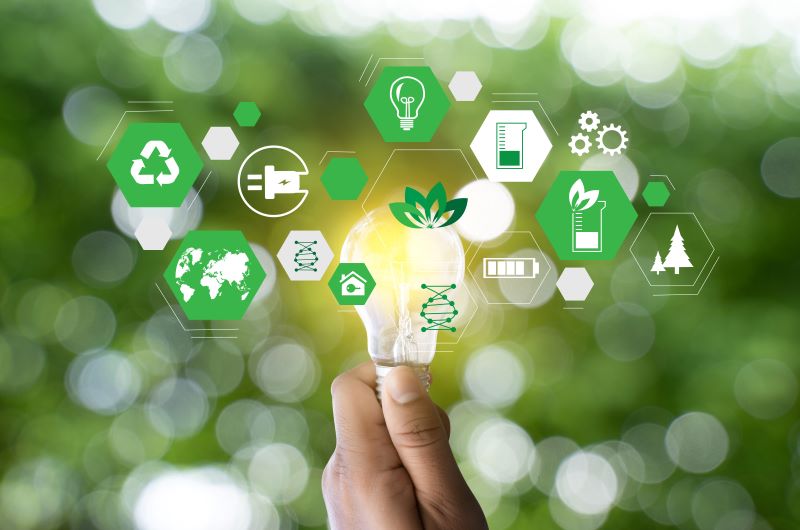Treasury’s proposed changes to accounting standard-setters
Treasury issued documents in 2022 and 2023, proposing changes in the structure and roles of the standard-setters the...
READ MORE
The world is entering a new and fourth revolution, what we at Findex believe is the ‘Sustainability Movement’.

When referring to a revolution, we are speaking about defining movements that can affect change across economic, technological, political and social spectrums. Let’s quickly review three key revolutions throughout our history that have progressed civilisation, before diving into our oncoming fourth:
The first was the ‘Agricultural Revolution’ that led numerous cultures and lifestyles from hunting and gathering to one of agriculture and settlement. It brought on the establishment of towns, food-crop cultivation, deforestation, domestication of animals and rapid population growth,
To keep up with the demands of our growing population, the world evolved from hand-based production to machine based, bringing on the ‘Industrial Revolution’. This period saw fast expansion of machine-based production, tools, chemical manufacturing and energy use (steam & water).
Modernising industrial methods then saw us transition to the 'Digital Revolution’, we went from analogue electric and mechanical devices to digital technology. The change provided us with the internet, digital computers, digital record keeping, mobile devices and the current era in which we live.
Across these revolutions and to this day our global population growth continues. With advancements in medical treatments and medications our population also continues to live longer. Reviewing the trends across the three previous revolutions show us civilisation were triggered to evolve, that they had to take on new methods to keep up with the demands of a growing population.
However, the methods of keeping up with civilisation demands has resulted in consuming natural resources faster than what we could replenish. These practices have largely contributed to environmental damage, climate change and social issues.
The fourth revolution embraces addressing these issues, to once again evolve civilisation into its next chapter.
So, what do we mean by the ‘Sustainability Movement’? Well firstly – the word ‘sustainability’ consists of three pillars being, Environmental, Social and Governance, or ‘ESG’. These pillars are interlinked, the delivery of one can’t deliver authentic outcomes without the incorporation of the other.
Today consumer demand already shows investors, customers, talent and the public have a growing expectation for businesses to deliver value in a way that responds to society’s needs, values and issues across the ESG pillars. Those businesses that do, are already are reporting higher operating margins – even in times of a global crisis.
The COVID-19 pandemic in 2020 created a global crisis that catapulted businesses to rapidly evolve to keep operating. This was seen with large work forces quickly transitioning to working remotely, businesses taking up new technologies and delivering innovative ways for customers to continue to access their goods and services.
These transitions are evidence that society can rapidly evolve and change when needed. Additionally, it has resulted in the world being rushed through the remaining years of the digital revolution, by fully embracing, integrating and operating with the use of the digital technology.
Another insight from the pandemic, showed that investing in ESG did not slow during the pandemic, instead it increased. Morgan Stanley Institute for Sustainable Investing research1 showed that investment in ESG portfolios during the pandemic, outperformed non-ESG portfolios. This demonstrates businesses do not see ESG as a financial burden in times of crisis, rather that ESG is a way forward for their business to evolve and build resilience into the future. Again showing, we can evolve and adapt rapidly.
Changing is hard and can seem overwhelming. Though the question we/you should be asking is “If we don’t start now, will it be too late?”. We can already see through the investment in ESG during the COVID-19 pandemic businesses are starting now, no doubt recognising what happens when you’re too slow to evolve with a new movement. Blockbuster, Kodak, Xerox, Nokia and Myspace, are examples of companies that didn’t evolve fast enough during the digital revolution. They were quickly replaced by the countless streaming services, sharing photos through social media, cloud based filing and electronic signatures to name a few.
Change can start at any scale; the important part is commencing and recognising there are countless benefits to incorporating ESG in how you do business.
We at Findex, recognise we have already made some great inroads across the environmental, social and governance pillars. COVID-19 accelerated our adoption of digital tools when dealing with clients which saw us reduce paper use across multiple service lines by 50-60%. Our Findex Community Fund has donated $1.8 million to charities across Australia and New Zealand since 2018 and we have implemented a broad range of policies to govern the way we do business and interact with our clients as a good corporate citizen.
While we are proud of these achievements, we recognise there is room to evolve more – to further embrace the sustainability movement. We have commenced in further evolving, broadening and strengthening our ESG capabilities by commencing the development of our first Sustainability Strategy for Australia and New Zealand that will set us a path forward. Our strategy will incorporate what we do best now while taking on new methods to ensure how we do business delivers the best to our clients and the communities in which we operate.
The Fourth Revolution has started, the question everyone should be asking now is – “when are you joining?”.